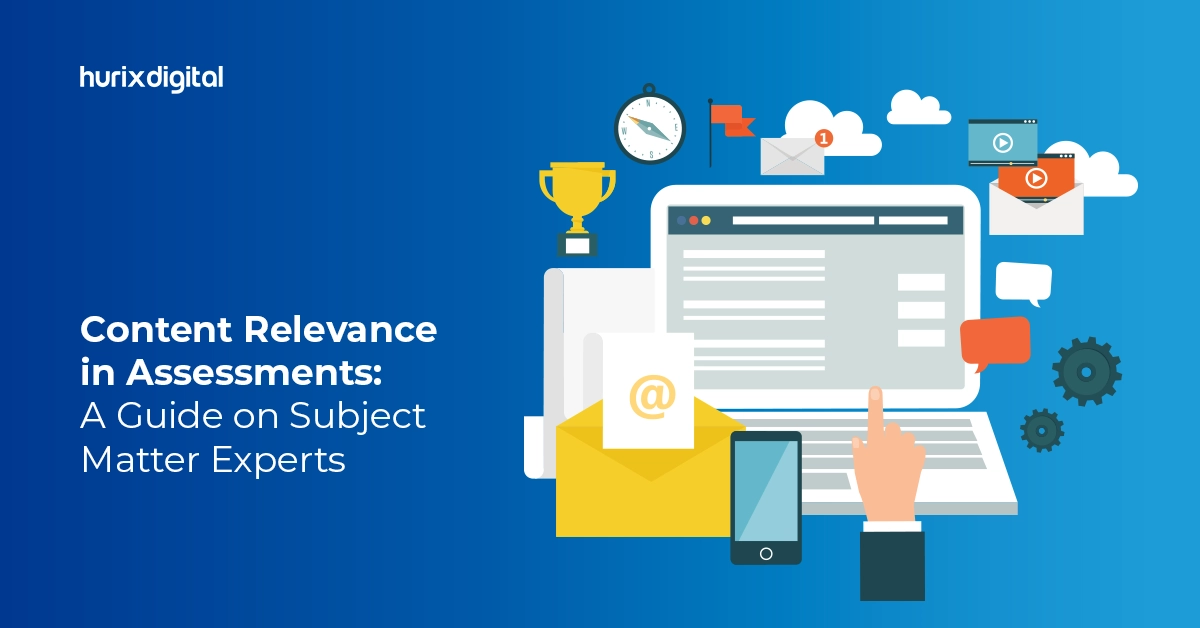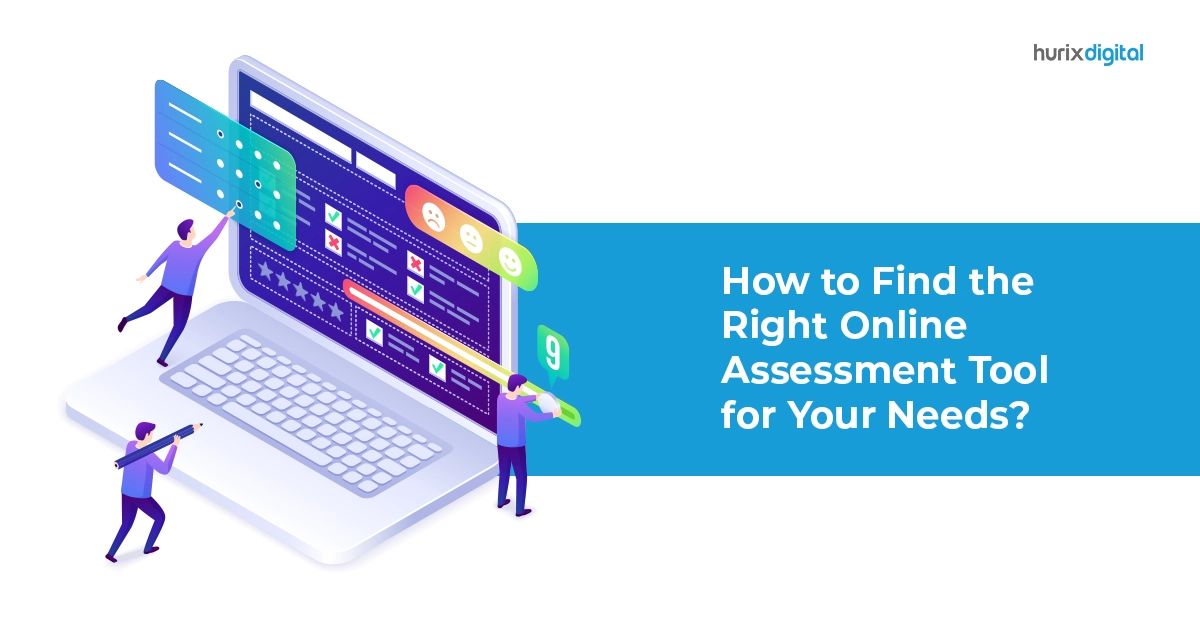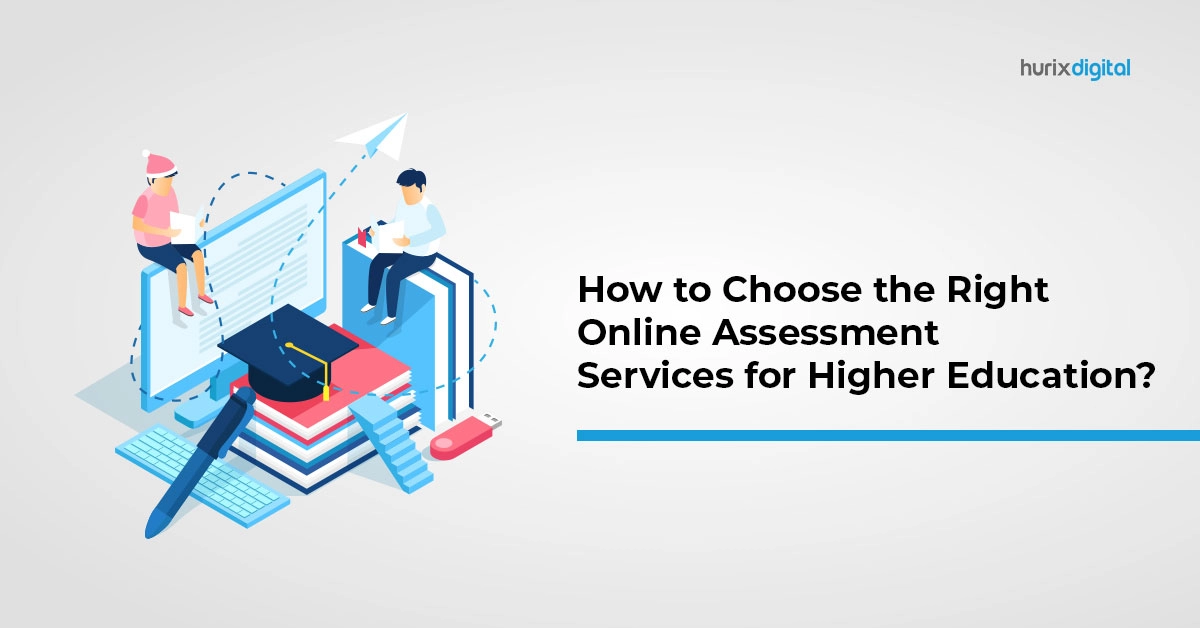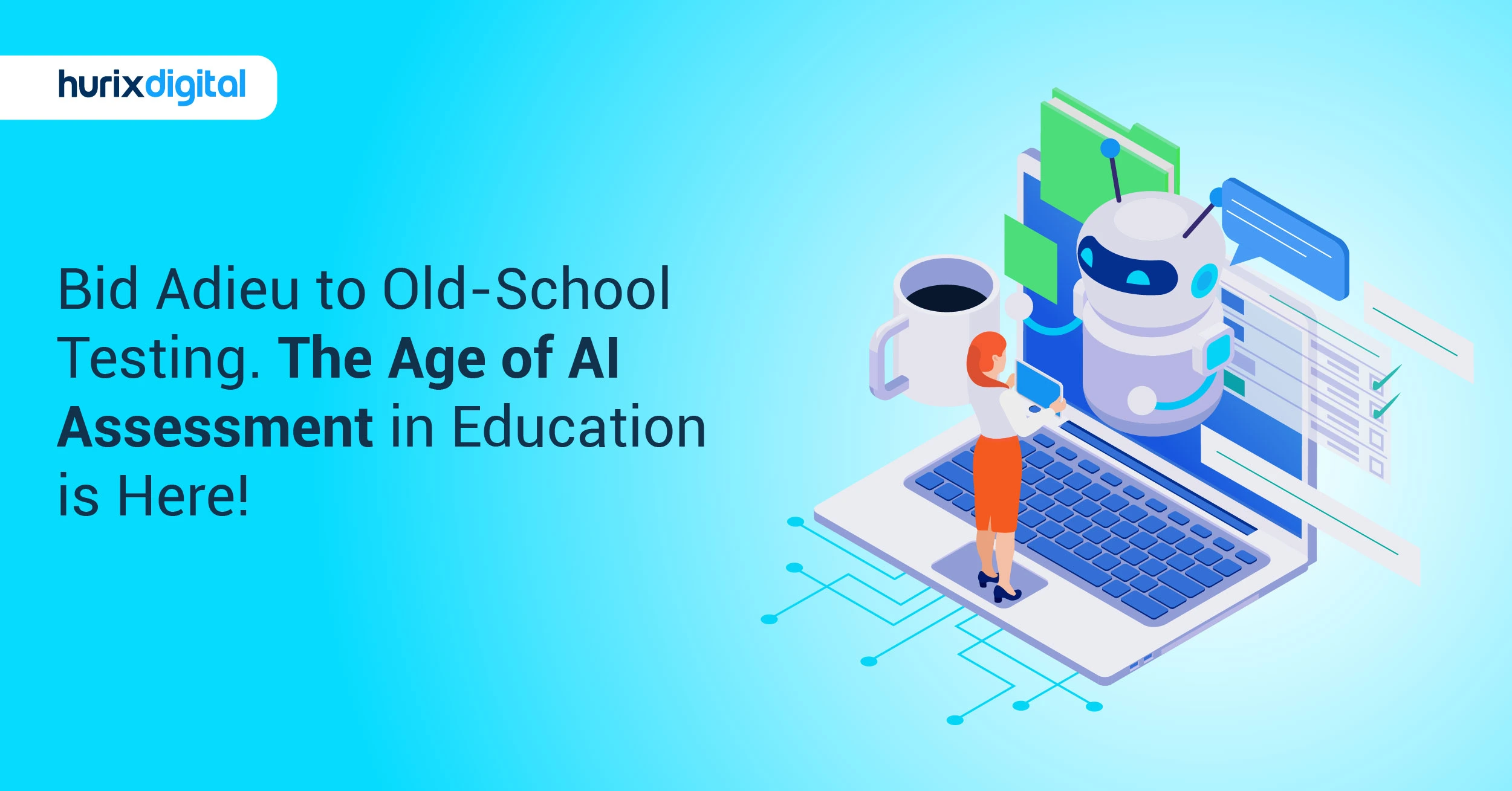
Content Relevance in Assessments: A Guide on Subject Matter Experts
Assessments are the basic pillars of effective learning. They offer precious insights into students’ knowledge, recognize areas of improvement, and ultimately measure learning success.
Nonetheless, for assessments to be meaningful, they must be directly connected to the content. That is where Subject Matter Experts (SMEs) play an essential role.
They are extensively familiarized with the core concepts and skills of a specific subject, which helps them enhance their learning methods. Moreover, with this background, SMEs craft assessment tools to extend valuable knowledge into genuine student learning and engagement.
Keep scrolling to understand the significance of SMEs in ensuring content relevance in assessments.
Table of Contents:
- Who are SMEs, and Why are They Important?
- The Art of Ensuring Content Relevance
- Collaboration is Key
- Benefits of SME Involvement
- Finding the Right SME
- The Ongoing Role of SMEs
- Beyond Traditional Assessments
- The Cost-Effectiveness of SME Involvement
- Conclusion
Who are SMEs, and Why are They Important?
Subject matter experts or SMEs are individuals with comprehensive and specialized knowledge in particular subjects or fields.
It might be experienced teachers, researchers, or industry professionals. Alternatively, it can be any other individual with a verified track record of specific domain expertise.
Their in-depth subject matter understanding makes them invaluable partners in crafting assessments that accurately measure students’ knowledge and abilities.
The Art of Ensuring Content Relevance
Creating content-relevant assessments isn’t simply throwing together a bunch of questions. It’s an art that requires careful consideration of various factors. Here’s where SMEs come in with their expertise:
1. Alignment with Learning Objectives
SMEs ensure assessments directly measure the skills and knowledge outlined in the learning objectives. They analyze these objectives and identify the essential learnings that need to be assessed. This prevents irrelevant content from entering assessments, resulting in an accurate and focused evaluation.
2. Industry Standards and Best Practices
SMEs incorporate the latest industry standards and best practices into assessments. This guarantees that students master theoretical concepts and develop relevant skills for future careers.
3. Depth and Difficulty Level
Finding the right balance between difficulty and depth is crucial. SMEs help plan assessments that challenge students without excessive complication or frustration. They can create a range of question formats, such as multiple choice, essays, and performance tasks, to cater to different learning styles and assess diverse skills.
4. Avoiding Bias
Unintentional bias in assessments can lead to unfair evaluations. SMEs can review questions for potential bias in language, content, or cultural references. This ensures fairness for all students and offers a clearer picture of their learning.
Collaboration is Key
While SMEs bring invaluable subject matter expertise, collaboration is key to creating truly effective assessments. The ideal scenario involves SMEs working alongside instructional designers, assessment specialists, and educators. This diverse team can leverage each other’s strengths:
- SMEs provide the content foundation and ensure the assessment reflects real-world applications.
- Instructional designers bring assessment design expertise, transforming content into engaging and effective question formats.
- Assessment specialists maintain the technical integrity of the assessment, ensuring proper scoring and analysis.
- Educators provide insights into student learning styles and classroom realities, ensuring the assessment is feasible and appropriate for the target audience.
Also Read: 4 Steps to Transform SME Knowledge into High-Impact Content
Benefits of SME Involvement
The benefits of involving SMEs in assessment development are numerous. Here are some key advantages:
1. Increased Validity and Reliability
SME involvement leads to assessments that accurately measure the intended learning objectives. This validity ensures the assessment truly reflects what students have learned. Reliability refers to the consistency of the assessment, meaning it produces similar results if administered multiple times.
2. Improved Learning Outcomes
Content-relevant assessments provide valuable feedback that can be used to adjust instruction and personalize learning experiences. This leads to deeper understanding and enhanced learning outcomes for students.
3. Enhanced Student Engagement
Assessments that are relevant and applicable to the real world make students more likely to be engaged, which motivates them to perform well.
4. Reduced Bias
SMEs can help identify and eliminate potential bias in the assessment, leading to fairer evaluations for all students.
Finding the Right SME
Identifying the right SME for your assessment needs is crucial. Consider the following factors:
1. Subject Matter Expertise
The SME should possess deep knowledge in the specific domain being assessed.
For instance, if you are developing a high school history assessment on the American Civil War. An ideal SME for this scenario would be a Civil War historian with a Ph.D. in the field. This individual would possess a deep understanding of the causes, events, and key figures of the war, allowing them to ensure the assessment accurately reflects this knowledge.
2. Experience with Assessment Development
While subject matter knowledge is essential, experience in assessment design is also valuable. An SME who understands different question formats and assessment strategies can be a great asset.
Imagine this: You’re planning a science assessment for middle school students.
You seek an excellent SME candidate – this might be a veteran science teacher who has a strong grasp of the assessed scientific concepts as well as exhaustive experience developing engaging and effective assessments for this age group.
They would understand the strengths and weaknesses of different question formats (multiple-choice, open-ended experiments) and tailor the assessment accordingly.
3. Communication Skills
The SME should be able to clearly articulate their expertise and collaborate effectively with other team members.
For example, you are developing a business communication assessment for college students. An ideal SME might be a seasoned corporate communications professional.
This individual must have great in-depth knowledge of effective communication strategies and abilities to clearly explain these critical concepts to others.
They should be able to collaborate with instructional designers to translate their expertise into clear and concise assessment questions and instructions for students.
The Ongoing Role of SMEs
The involvement of SMEs should never be a one-time event. They can play a valuable role throughout the assessment lifecycle:
1. Reviewing and Refining Existing Assessments
SMEs can help ensure existing assessments remain current and relevant by reviewing content and suggesting updates based on changes in the field.
2. Analyzing Assessment Data
SMEs can provide valuable insights after assessments are administered. They can help deduce student data, identify areas of their weaknesses, and suggest ways to enhance future assessment designs.
For instance, a science SME might scrutinize student performance on a biology exam and identify a bunch of missed questions related to a particular concept. This information can then be used to refine the assessment or adjust instruction to ensure students have a stronger grasp of the concept moving forward.
3. Staying Current with Industry Trends
SMEs are a valuable resource for aligning assessments with changing industry standards and best practices. They can help identify new skills and knowledge students need to be successful and ensure assessments reflect these changes.
In a rapidly changing field like technology, SMEs can ensure assessments go beyond theoretical knowledge and assess practical skills relevant to the latest industry tools and software.
Beyond Traditional Assessments
The role of SMEs does not stop at traditional paper-and-pencil assessments. With the introduction of computer-based assessments and e-learning, SMEs can also bring their expertise to these new formats. They can help develop interactive simulations, performance-based tasks, and open-ended questions that accurately assess student learning more engagingly.
The Cost-Effectiveness of SME Involvement
While involving SMEs may seem like an extra cost, it is a cost-effective solution in the long run. Here is why:
1. Reduced Assessment Development Time
As SMEs ensure content is relevant and focused from the outset, they help streamline the assessment development process.
This saves time and resources compared to creating assessments that may need to be revised multiple times due to content gaps or inconsistencies.
2. Improved Learning Outcomes
Effective assessments help achieve improved learning outcomes. By ensuring assessments accurately measure what students should know, SMEs help educators target instruction more effectively and ultimately improve student achievement. This translates to a better return on investment for educational programs.
3. Reduced Need for Remediation
Content-relevant assessments provide clear data on student learning gaps. This lets educators intervene early and offer targeted remediation, preventing the need for more costly interventions down the line.
Also Read: Top Tips to Streamline SME Collaboration with Your Organization
Conclusion
SMEs are more than just content experts; they are guardians of content relevance in assessments. By leveraging their knowledge and working collaboratively with other stakeholders, educators can create assessments that accurately measure learning, promote student engagement, and, ultimately, improve learning outcomes.
So, next time you develop an assessment, consider tapping into the valuable expertise of SMEs. This collaborative approach ensures your assessments are not only effective but also cost-effective, leading to a win-win situation for educators and students alike.
A reliable eLearning solution company like Hurix Digital offers a team of experts who not only help you identify the perfect SME for your needs but also bridge the gap between content expertise and assessment design. Do not settle for mediocre assessments. Contact us today and level up your learning programs!

Vice President – Content Transformation at HurixDigital, based in Chennai. With nearly 20 years in digital content, he leads large-scale transformation and accessibility initiatives. A frequent presenter (e.g., London Book Fair 2025), Gokulnath drives AI-powered publishing solutions and inclusive content strategies for global clients
 A Space for Thoughtful
A Space for Thoughtful 




